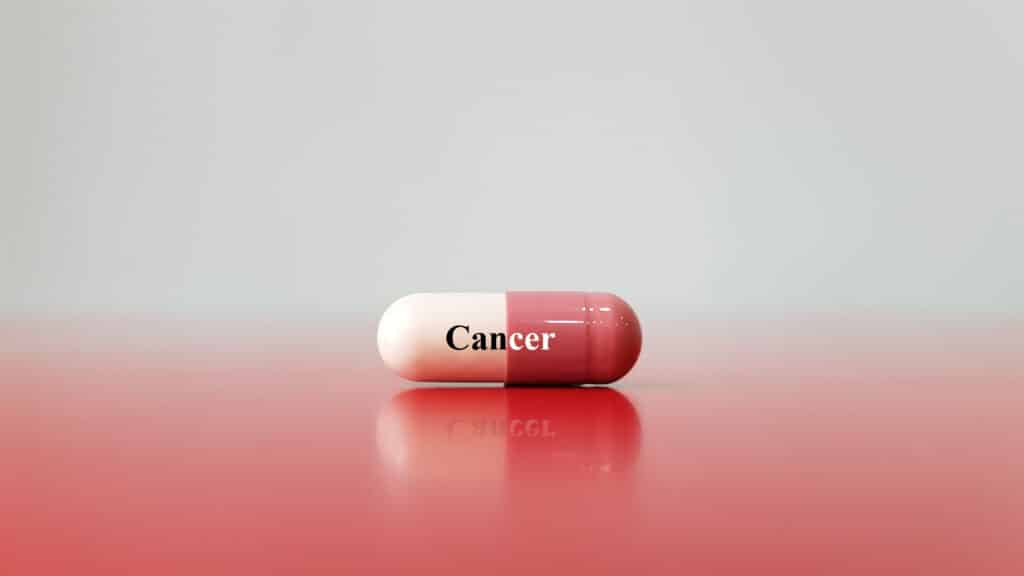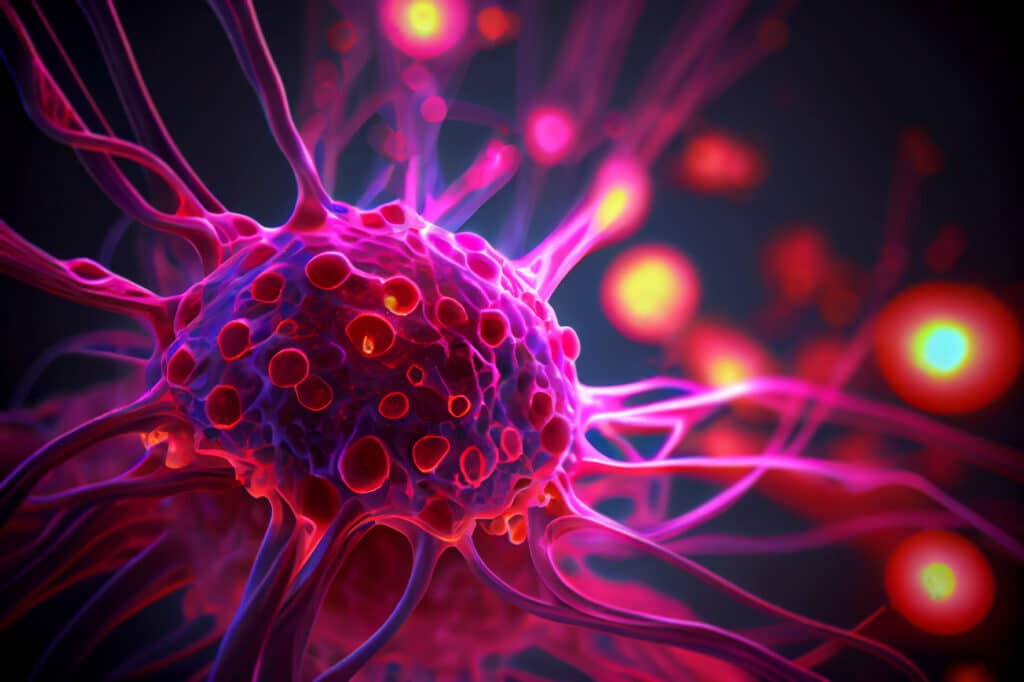Cancer patients are known to go toward cannabis to help ease symptoms of disease and treatment. Now, a new study seeks to find if cannabis has a negative effect on immunotherapy treatment.
Cannabis and cancer
Cannabis and cancer have gone together like an awful peanut butter and jelly sandwich for decades. The reason I say this is because cancer is a horrible issue, for which no absolute cures exist; and sufferers are often required to go through years of treatments to keep their lives. And many don’t make it.
While there is plenty of research into the possibility of using cannabis as a direct cancer treatment; its main use thus far in regards to cancer, is as a helping agent. Cannabis patients are often given harsh treatments like chemotherapy and radiation, which take a huge toll on the body, often more than the cancer itself (depending on the kind). Think of hair loss, and puking, and watching someone in bed who can barely move. These are not necessarily signs of cancer itself, but often of the treatment.
For many decades in modern cancer culture, cannabis has been used as a way to ease some of the symptoms related to these treatments, and the actual disease. A couple of the main ways are in relieving the sickness (nausea and vomiting) from chemotherapy, or afflictions like stomach cancer; as well as increasing the appetite to ward off wasting away. From movies and TV shows in the last several decades, we’re probably all familiar with the visual of a very sick looking person with their bald head covered, sucking on a joint in a backyard.

Cancer is one of the main illnesses that helped push medical marijuana laws through. Along with sicknesses like epilepsy and HIV, the ability to make life better for those with these diseases, was a major reason for initiatives on the medical front. Cancer is still one of the central diseases that medical policies revolve around.
Since marijuana has been federally illegal for so long, it was never pushed by the medical world as a treatment for cancer or symptoms. It’s just one of those things that was so obviously useful, that it caught on, despite negative press. It also represents a reason why smear campaigns are so damaging. Its one thing to fend off a recreational market; its something else entirely to keep sick people (including children) from a plant that can help them stay alive.
New study on whether cannabis affects immunotherapy treatment
A new study was announced that’s meant to look into whether cannabis has an affect on cancer immunotherapy treatment; and whether patient access to it, can bring down health disparity issues between populations. Health disparity is a term that represents the difference in preventable medical problems and outcomes, between different populations; with a particular eye on disadvantaged communities.
The study is funded by the National Cancer Institute of the National Institutes of Health (NIH). The grant was given to a psychiatrist at the University of Buffalo, but is to be done in conjunction with Thomas Jefferson University and Oregon Health and Science University. The study is meant to last about a year. The planned methodology is to have three different sites; with each recruiting 450 cancer patients undergoing immunotherapy treatment.
Immunotherapy treatment is actually quite different from chemotherapy. Whereas chemotherapy causes depression of the immune system and seeks to kill cancer cells with poison that also kills regular cells, immunotherapy treatments look to increase immune response. Chemotherapy is associated with incredible sickness; both from pathogens, as well as from the toxins in the medicine. It kills certain cancers, but it kills a lot of healthy cells too.
Immunotherapy, on the other hand, doesn’t destroy healthy cells. Instead, it marks cancer cells so the immune system can go after them, or helps the immune system in other ways; and this can sometimes be done without outside chemicals. Immunotherapy can cause severe immune reactions; but overall is established as a safer form of cancer treatment to other methods like chemo. Neither method works on every kind of cancer, so its not necessarily a one vs the other sort of thing. They’re both options at times; depending on the kind of cancer; and the individual genetics of the patient.

Immunotherapy has been around for over 100 years, but most medications were only approved in the last few years. Chemotherapy is the newer treatment, only starting post WWI; but somehow it cornered the market of cancer treatments. Though chemotherapy can work on some cancers, its strongly associated with hair loss, gastrointestinal problems, immunosuppression, anemia, infertility, massive issues in fetal development that usually require abortion, peripheral neuropathy, cognitive impairment issues, damage to organs, and even…cancer. Immunotherapy is not associated with these problems.
The study will measure the participants six times over one year; including medical records, outcomes, and blood work. Half will be cannabis users, half, not. Apart from investigating the role of cannabis in immune suppression; the study will also investigate how differences in the neighborhoods of patients, affect treatment outcomes.
Immunotherapy and cannabis
Cannabis has often been used as a way to mitigate issues that arise through use of chemotherapy. Even without chemotherapy, though, the regular symptoms of cancer, still occur. Many people undergoing therapy in any form, supplement with cannabis. University of Boston found that 40% of cancer patients said they used weed for pain reduction, as a sleep aid, or to raise their mood. In total, about 44% of cancer patients, are treated with immunotherapy.
Said the study’s principal investigator Rebecca Ashare in a press statement, there are “Virtually no long-term studies evaluating its potential benefits and harms for persons treated with immunotherapy for cancer, despite cancer and its treatments being qualifying conditions in most of the 37 states and Washington, D.C., that have legalized adult use or medical cannabis.”
She continued that the worry is that the same cannabis anti-inflammatory agents meant to decrease pain, could also possibly decrease immune function. Said Ashare, “There are concerns that cannabis might reduce the efficacy of immunotherapy. The demand for evidence is clear and this project represents an important first step in that process as both immunotherapy and cannabis use are becoming more widespread therapeutic options in oncology, accepted by many patients and physicians.”
The reason for this concern, is that inflammation is one of the body’s responses to problems. While inflammation can cause its own problems, especially when it happens outside of an issue, or won’t go away; its also a sign of immune function. Suppressing this action, could mean suppressing immune function; and there is supposition that cannabis is linked to this suppression. Some research, however, indicates it actually increases immune function.

If this sounds contradictory, much of the research world, is; because the ideas come from different places. The notion that it suppresses function, goes along with the idea of anti-inflammation. But, this implies that suppression in one way, causes suppression in others. On the other hand, it might be associated with increasing white blood cells according to research. And a recent study shows that people with covid, had better overall outcomes when they used cannabis; even when they smoked it. In fact, research also points to cannabis as an immune-regulator.
The study is therefore less about cancer, and more about investigating if cannabis actually suppresses immune function. And while its hard to ever say that a decently done study is a bad thing (and I make no judgement of this kind here, as no study occurred yet); it should be remembered that cannabis is repeatedly used by HIV patients, who are by nature immunocompromised. In the case of HIV, after decades of use in this way, its never been associated with hurting immune systems more.
It should also be noted (as an aside for ALL cannabis research) that any study into cannabis, that doesn’t account for smoking vs other intake methods, should be automatically questioned. Not accounting for this means not accounting for the co-morbid issues of smoking; and we know how damaging smoking is. If a study investigation team leaves this out; it indicates untrained or unknowable researchers, or a leaning toward intense non-professional behavior.
Conclusion
The reality is that very little points to cannabis weakening the immune system; and most literature and life experience, point to its usefulness for a myriad of illness, which implies the opposite. Most situations where there is detriment, are related to smoking; and this should always be remembered. It will be interesting to see the results of the study.
Thanks for coming by. Welcome to the independent news publication Cannadelics.com; where we report on the cannabis industry, and well beyond. We love having you here; so join us again soon. And check out the Cannadelics Weekly Newsletter; for top updates, direct to your email.







